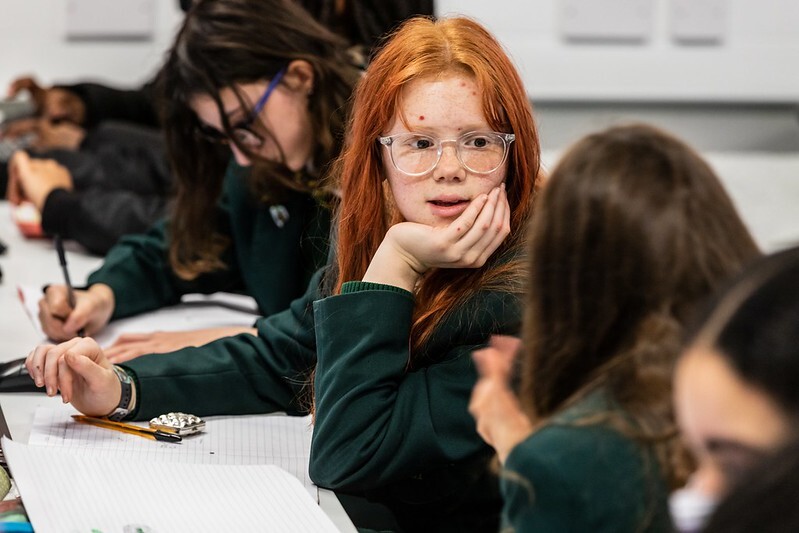Harnessing industry approaches to learning with Innovate for Climate Change
 Students taking the Innovate for Climate Change course
Students taking the Innovate for Climate Change course
At Apps for Good we give learning a real-world context by bringing the world of work into the classroom. Our new course incorporates industry approaches such as pair programming for students learning to code as well as design thinking to improve the process with which students develop ideas together. Both approaches strengthen students’ understanding of the workplace. We also inspire students with innovative climate action social tech apps and the entrepreneurs who pioneer them, as well as arrange for students to meet an industry professional in a live, dedicated online session. Students learn about the causes of climate change and the innovative climate action already taking place to help them when they come to design their own climate action app, addressing a particular climate challenge facing their community.
Pair programming is an approach born out of the software industry where professional programmers program together. It’s now being adopted in educational settings where two students share a single computer. Whether undertaken at work or in school, pair programming is a way of sharing knowledge with the aim of producing elegant code – a clean, concise and easy to understand program. Pair programming is a useful means of sense checking a program as it is being written as it’s easier to debug a program and identify issues when you haven’t created the code. Throughout pair programming, pairs are encouraged to think aloud – to share their thinking process with each other. As a result, pair programmers in the classroom engage in lively debate whilst they collaboratively problem-solve.
Design thinking is another collaborative process employed throughout the technology sector and beyond. It is often used by teams who have a product-orientated challenge so it’s perfect for Apps for Good courses and it’s a core element within all our courses.
Design thinking has five nonlinear stages: empathise, define,ideate, prototype and test – see IDEO. It’s highly iterative with each stage being revisited many times over the sessions in order for students to refine their ideas. At the outset, teams empathise with students researching the potential of apps – for ICC they research climate action as well as identify users and their needs. Teams then clearly define an issue by articulating it. The ideate stage is where teams generate a range of creative, innovative new ideas for apps using rapid, sprint thinking. Through the block-based learning tool App Lab, students prototype their climate action app. Finally, as with all industry processes, teams test their apps with users. And then it’s back round to empathising again.
Social tech examples – through Apps for Good courses we introduce students to a range of companies in the tech sector, led by inspiring entrepreneurs who harness the power of technology for social good. Our mission is to help young people positively impact society – we therefore introduce them to professionals who put people and the planet first, rather than just making a profit. In fact, for Innovate for Climate Change, we’ve even made a film about new climate action app start-ups, to help immerse students in the world of social tech.
Pitch to industry professionals – students imagine sharing an elevator with an industry professional for 30 seconds. We ask students how they would communicate their app idea to them. Effectively used in well-known TV series’ The Apprentice and Dragons’ Den, as well as many other industry settings, the elevator pitch is a lesson in succinct communication.
Remotely, via a video call, teams deliver their mini pitch and receive live feedback on their idea from an industry professional from the technology sector. This experience helps teams develop their app idea as well as enable students to practise the essential (life) skills of teamwork and communication which they will need in the workplace. For many students this experience provides them with the first opportunity to meet a professional within any of the subjects they are taught in school. Industry engagement is a unique Apps for Good offer, organised by teachers through our online platform, at a time of their choosing. We have a large community of industry volunteers ready to help.
Innovate for Climate Change will be available to all schools to deliver next academic year. Visit www.appsforgood.org/climate for more information and to register your interest.
Dr Emma Posey, Senior Learning Manager, Apps for Good.